#Party of European Socialists
Text
16- and 17-year-olds will be able to vote for the European Parliament in Belgium for the first time this year.
Belgium knows a system of mandatory voting, in the sense that showing up to vote is compulsory - you don't have to vote for anyone if you don't want to, you can abstain from voting right then and there, but you do have to show up. For this reason, the Constitutional Court of Belgium ruled this would also need to be the case for 16- and 17-year-olds as well.
This would mean they would be susceptible to being sanctioned if they fail to turn out. However, yesterday, it was decided by the government that young people will not be given a fine if they don't turn out.
While those over 18 can still be fined and sued, in practice, people who don't turn out to vote aren't usually prosecuted.
Voter turnout in Belgium is one of the highest in the world, with 90% in the last federal elections (2019). Elections are always held on a Sunday. (I'm always so confuses when elections are held on weekdays in other countries, haha)
Mandatory voting was written into the Constitution in 1893, after a general strike organised by the then existing Belgian Labour Party (the first socialist party in Belgium). Voting was made mandatory so that bosses could not pressure their workers, who were usually from lower social classes, not to go vote (by making them work or threatening to fire them, for example).
If you live abroad, you can vote by mail. You can also vote by proxy.
#socialism#socialist party#young people#young voters#belgian politics#elections#politics#belgian elections#european parliament#EU#european union#knowing the history of mandatory voting in Belgium makes me a staunch proponent of 1) voting and 2) mandatory voting
7 notes
·
View notes
Text

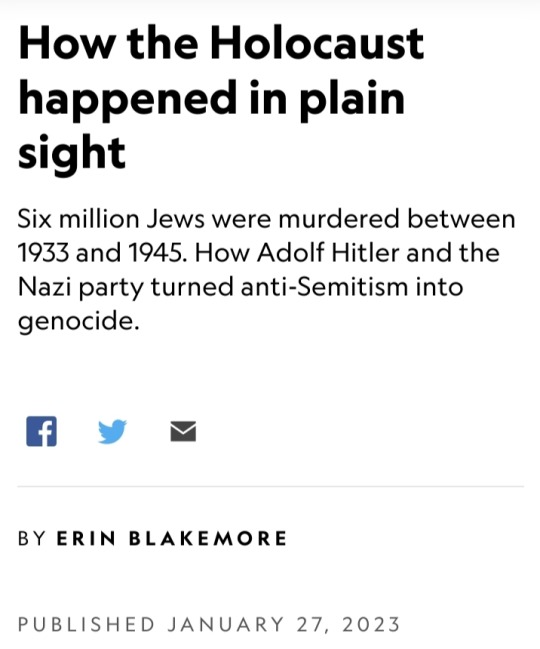
Six million Jews murdered. Millions more stripped of their livelihoods, their communities, their families, even their names.
The horrors of the Holocaust are often expressed in numbers that convey the magnitude of Nazi Germany’s attempt to annihilate Europe’s Jews.
The Nazis and their collaborators killed millions of people whom they perceived as inferior—including Jehovah’s Witnesses, gay men, people with disabilities, Slavic and Roma people, and Communists.
However, historians use the term “Holocaust”—also called the Shoah, or “disaster” in Hebrew—to apply strictly to European Jews murdered by the Nazis between 1933 and 1945.
No single statistic can capture the true terror of the systematic killing of a group of human beings—and given its enormity and brutality, the Holocaust is difficult to understand.
How did a democratically elected politician incite an entire nation to genocide? Why did people allow it to happen in plain sight? And why do some still deny it ever happened?
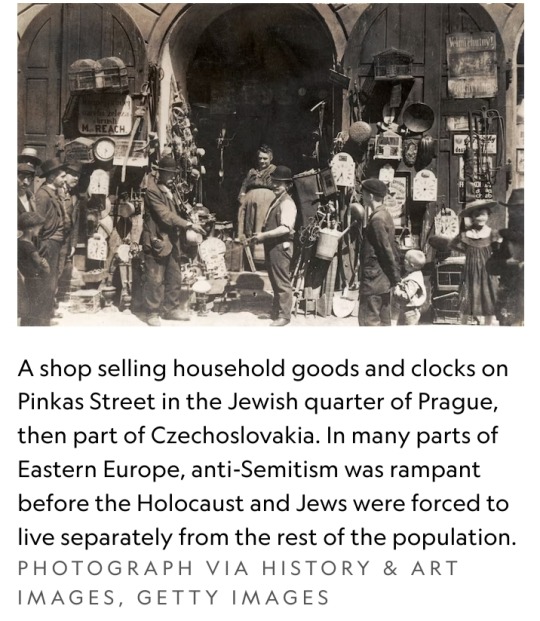

European Jews before the Holocaust
By 1933, about nine million Jews lived across the continent and in every European nation.
Some countries guaranteed Jews equality under the law, which enabled them to become part of the dominant culture.
Others, especially in Eastern Europe, kept Jewish life strictly separate.
Jewish life was flourishing, yet Europe’s Jews also faced a long legacy of discrimination and scapegoating.
Pogroms—violent riots in which Christians terrorized Jews—were common throughout Eastern Europe.
Christians blamed Jews for the death of Jesus, fomented myths of a shadowy cabal that controlled world finances and politics, and claimed Jews brought disease and crime to their communities.
The rise of Adolf Hitler
It would take one man, Adolf Hitler, to turn centuries of casual anti-Semitism into genocide.
Hitler rose to power as leader of the National Socialist German Workers’ Party, also known as the Nazi Party, in the 1920s.
Hitler harnessed a tide of discontent and unrest in Germany, which was slowly rebuilding after losing the First World War.
The nation had collapsed politically and economically, and owed heavy sanctions under the Treaty of Versailles.
The Nazi party blamed Jews for Germany’s troubles and promised to restore the nation to its former glory.
Hitler was democratically elected to the German parliament in 1933, where he was soon appointed as chancellor, the nation’s second-highest position.
Less than a year later, Germany’s president died, and Hitler seized absolute control of the country.
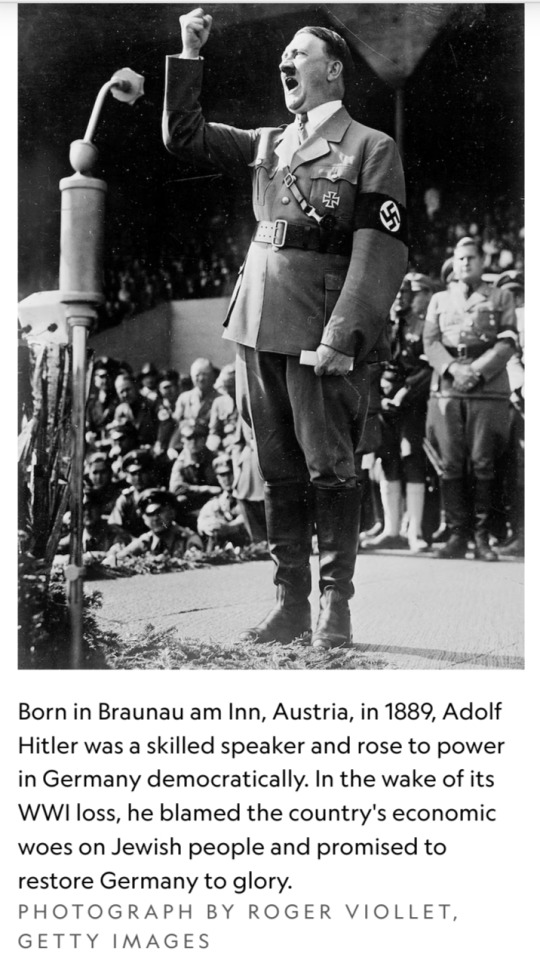
The early Nazi regime
Immediately after coming to power, the Nazis promulgated a variety of laws aimed at excluding Jews from German life—defining Judaism in racial rather than religious terms.
Beginning with an act barring Jews from civil service, they culminated in laws forbidding Jews from German citizenship and intermarriage with non-Jews.
These were not just domestic affairs: Hitler wanted to expand his regime and, in 1939, Germany invaded Poland.
It marked the beginning of the Second World War—and the expansion of the Nazis’ anti-Jewish policies.
German officials swiftly forced hundreds of thousands of Polish Jews into crowded ghettoes, and with the help of locals and the German military, specially trained forces called the Einsatzgruppen began systematically shooting Jews and other people the regime deemed undesirable.
In just nine months, these mobile murder units shot more than half a million people in a “Holocaust by bullets” that would continue throughout the war.
But Hitler and his Nazi officials were not content with discriminatory laws or mass shootings.
By 1942, they agreed to pursue a “final solution” to the existence of European Jews:
They would send the continent’s remaining 11 million Jews east to death camps where they would be forced into labor and ultimately killed.
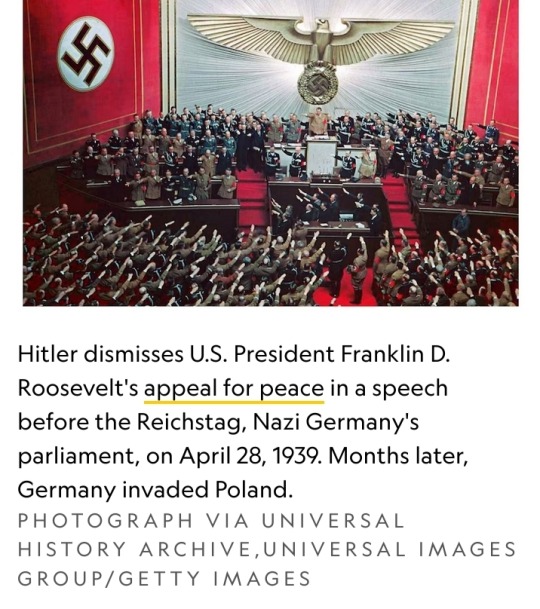
Genocide in plain sight
By characterizing their actions as the “evacuation” of Jews from territories that rightfully belonged to non-Jewish Germans, the Nazi operation took place in plain sight.
Though thousands of non-Jews rescued, hid, or otherwise helped those targeted by the Holocaust, many others stood by indifferently or collaborated with the Nazis.
With the help of local officials and sympathetic civilians, the Nazis rounded up Jews, stripped them of their personal possessions, and imprisoned them in more than 44,000 concentration camps and other incarceration sites across Europe.
Non-Jews were encouraged to betray their Jewish neighbors and move into the homes and businesses they left behind.
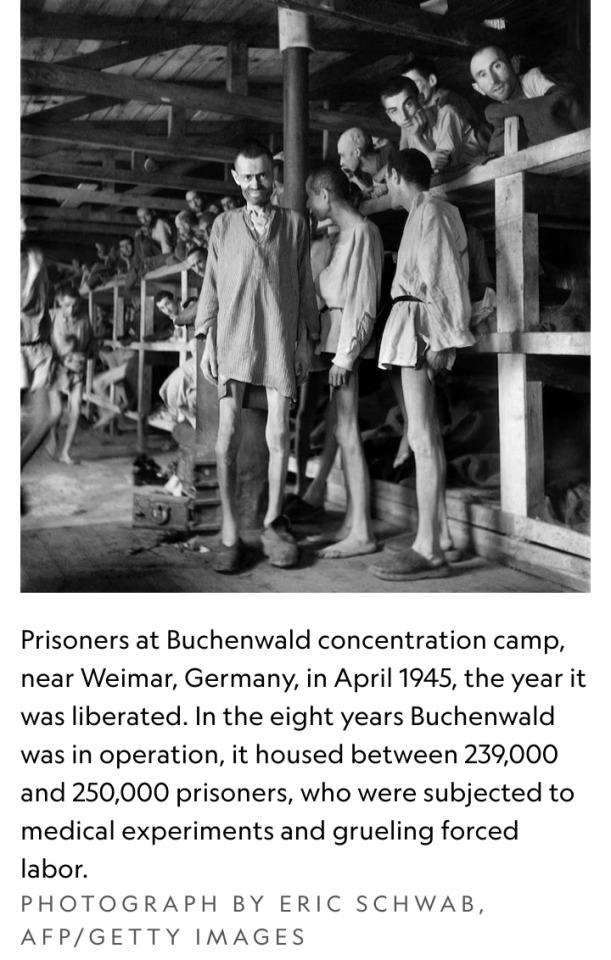
Dachau, which opened near Munich in 1933, was the first concentration camp.
Five others—Auschwitz-Birkenau, Chelmno, Belzec, Sobibor, and Treblinka—were designated as killing centers, where most Jews were immediately murdered upon arrival.
The killings took place in assembly-line fashion:
Mass transports of Jews were unloaded from train cars and “selected” into groups based on sex, age, and perceived fitness.
Those selected for murder were taken to holding areas where they were told to set aside their possessions and undress for “disinfection” or showers.
In reality, they were herded into specially designed killing chambers into which officials pumped lethal carbon monoxide gas or a hydrogen cyanide pesticide called Zyklon B that poisoned its victims within minutes.

Credit: Zyklon B (Wikipedia)
The earliest Holocaust victims were buried in mass graves. Later, in a bid to keep the killings a secret, corpses were burned in large crematoria.
Some Jews were forced to participate in the killings, and then were themselves executed to maintain secrecy.
The victims’ clothing, tooth fillings, possessions, and even hair was stolen by the Nazis.
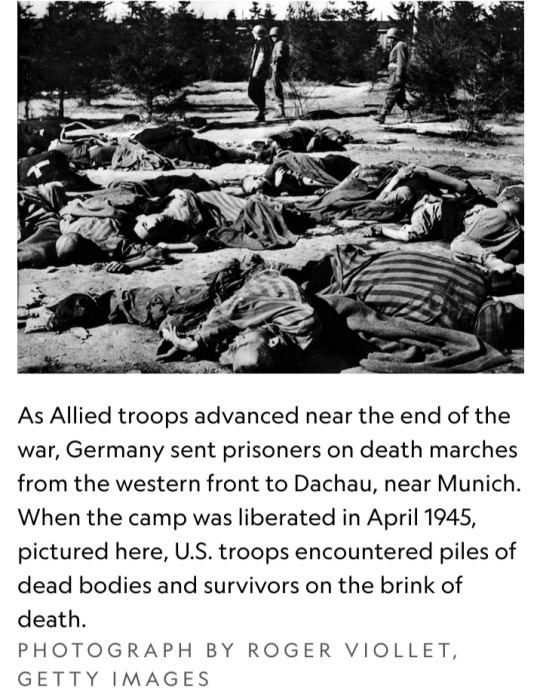
Life in the camps
Those not chosen for death were ritually humiliated and forced to live in squalid conditions.
Many were tattooed with identification numbers and shorn of their hair.
Starvation, overcrowding, overwork, and a lack of sanitation led to rampant disease and mass death in these facilities.
Torture tactics and brutal medical experiments made the camps a horror beyond description.
“It is not possible to sink lower than this; no human condition is more miserable than this, nor could it conceivably be so,” wrote Auschwitz survivor Primo Levi in his 1947 memoir.
“Nothing belongs to us any more…if we speak, they will not listen to us, and if they listen, they will not understand. They will even take away our name.”
But despite almost inconceivable hardships, some managed to resist.
“Our aim was to defy Hitler, to do everything we [could] to live,” recalled Majdanek and Auschwitz survivor Helen K. in a 1985 oral history. “He [wanted] us to die, and we didn’t want to oblige him.”
Jews resisted the Holocaust in a variety of ways, from going into hiding to sabotaging camp operations or participating in armed uprisings in ghettoes and concentration camps.
Other forms of resistance were quieter, like stealing food, conducting forbidden religious services, or simply attempting to maintain a sense of dignity.
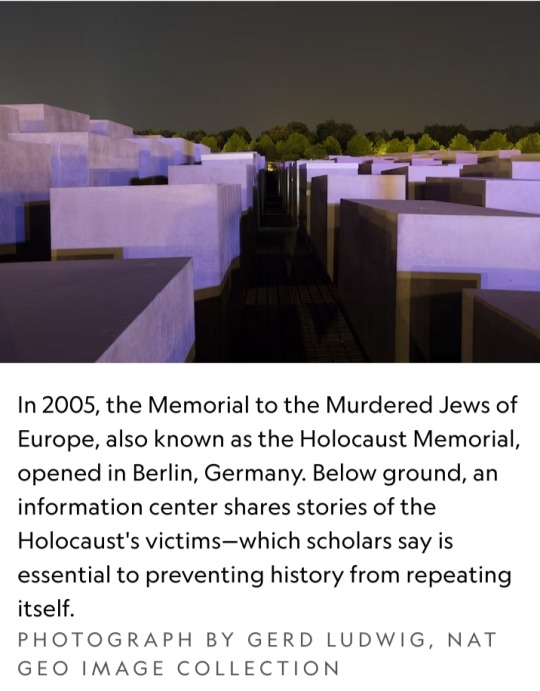
The aftermath of the Holocaust
As World War II drew to a close in 1944 and 1945, the Nazis attempted to cover up their crimes, burning documents, dismantling death camp sites, and forcing their remaining prisoners on brutal death marches to escape the advancing Allies.
They didn’t succeed: As they liberated swaths of Europe, Allied troops entered camps piled high with corpses and filled, in some cases, with starving, sick victims.
The evidence collected in these camps would become the basis of the Nuremberg Trials, the first-ever international war crimes tribunal.
In the war’s aftermath, the toll of the Holocaust slowly became clear.
Just one out of every three European Jews survived, and though estimates vary, historians believe at least six million Jews were murdered.
Among them were an estimated 1.3 million massacred by the Einsatzgruppen; approximately a million were murdered at Auschwitz-Birkenau alone.
Many survivors had nowhere to go. Poland had Europe’s largest Jewish population before the war but lost 93 percent of that population in just five years.
Entire villages and communities were wiped out and families scattered across Europe.
Labeled “displaced persons,” survivors attempted to rebuild their lives. Many left Europe for good, emigrating to Israel, the United States, or elsewhere.
Holocaust denial
Despite the enormity of evidence, some people sowed misinformation about the Holocaust, while others denied it happened at all.
Holocaust denial persists to this day, even though it is considered a form of antisemitism and is banned in a variety of countries.
How to counter the hate? "Educating about the history of the genocide of the Jewish people and other Nazi crimes offers a robust defence against denial and distortion," concluded the authors of a 2021 United Nations report on Holocaust denial.
Though the number of Holocaust survivors has dwindled, their testimonies offer crucial evidence of the Holocaust’s horrors.
“The voices of the victims—their lack of understanding, their despair, their powerful eloquence or their helpless clumsiness—these can shake our well-protected representation of events,” said Saul Friedländer, a historian who survived the Holocaust and whose parents were murdered at Auschwitz, in a 2007 interview with Dissent Magazine.
“They can stop us in our tracks. They can restore our initial sense of disbelief, before knowledge rushes in to smother it.”
#Holocaust#Nazi#European Jews#Jews#Shoah#World War II#concentration camps#genocide#Germany#Poland#Europe#Allied Forces#Nazi Party#National Socialist German Workers’ Party#Austria#Holocaust Memorial#Memorial to the Murdered Jews of Europe#Nuremberg Trials#Holocaust Memorial Day 2023
12 notes
·
View notes
Text
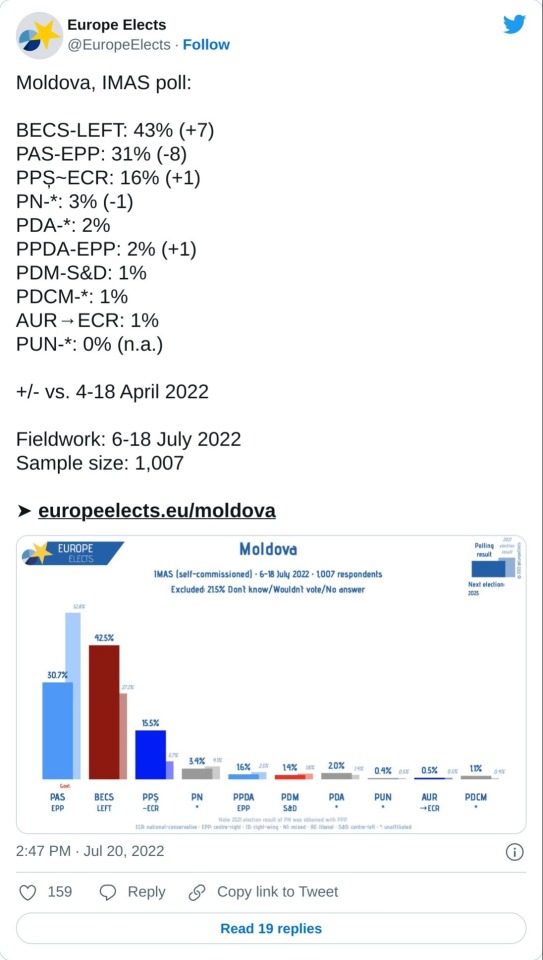
Moldovan Electoral Bloc of Communists & Socialists (BECS) takes a 12% lead in latest polls.
#like most eastern european socialist parties you dont wanna look up their views on lgbt issues#tho whether theyre worse than the average moldovan/east european adult who can say
26 notes
·
View notes
Text
France before the European elections : Socialist Party and leftist “Place Publique” led by Raphaël Glucksmann scored 13% in latest polls
The joint EU election list formed by the French Socialist Party and leftist “Place Publique” led by Raphaël Glucksmann scored 13% in polls published on Wednesday and could be a cause for concern within Macron’s Renaissance camp that their core voter base is shifting to the left.
In a new poll published in French daily Challenges on Wednesday, the EU list headed by Glucksmann was polling at 13%,…
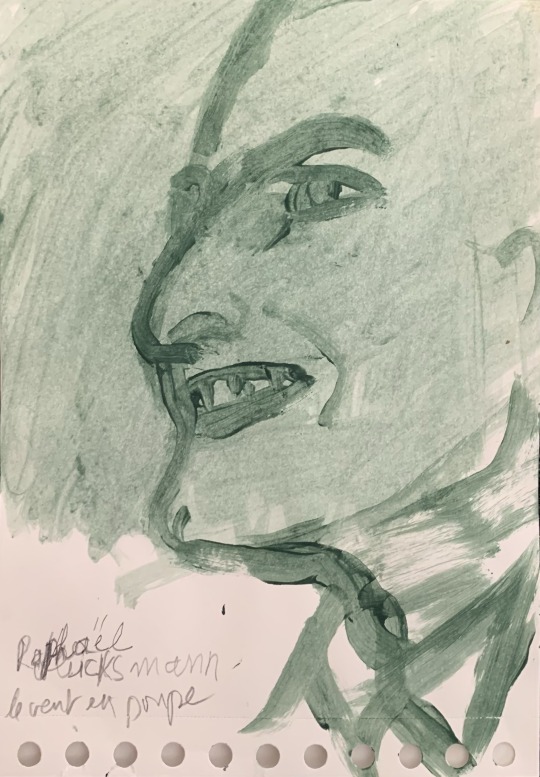
View On WordPress
1 note
·
View note
Text
Conner Rousseau, leader of the Flemish Socialist Party: Drunk racist remarks, sober apologies
Conner Rousseau, leader of the Flemish Socialist Party, has officially apologised for his racist remarks. The politician insists his comments were a joke and he was drunk.
However, a number of Belgian public officials condemned the Socialist leader for his offensive remarks and criticised his apology as unconvincing.
In September, Rousseau was thrust into the spotlight after it was reported that he made racist and xenophobic remarks while interacting with police officers at a festival in the Flemish town of Sint-Niklaas.
At a press conference on Thursday, Rousseau said he regretted the “insulting statement” he made to the Roma community. As reported by multiple local outlets, Rousseau said:
“It’s not consistent with who I am. My volunteer work, the person I am, my political commitment … weighs much more than one sad, clumsy moment.”
Read more HERE

#world news#world politics#news#europe#european union#european news#eu politics#eu news#rousseau#flemish#socialist party
0 notes
Note
why do zionists always assume its antisemitic to think that zionism a settler colonial idea
Modern Zionists aren't actually well-read into their own history. I could invoke the likes of Theodore Herlz, Ze'ev Jabotinsky, David Ben Gurion, and many other political Zionists and how they were ardent supporters of settler colonialism, yet it wouldn't get through their head, because they genuinely believe the land of Palestine is their right to claim, despite the people inhabitating the area. But to claim that the establishment of the Settler state was necessary due to antisemitism is not correct.
The pogrom of the Jewish people in the Pale of Settlement in Imperial Russia resulted in the mass displacement of Jews. But most Jews did not flee to Palestine, but to the US and Western Europe to live relatively better lives, due to the French revolution and so on. They had no desire whatsoever to move to Palestine due to its harsh climate and environment. Although the repression of Jews in the 19th century added to Zionism's appeal, Zionism did not emerge because of it as is often portrayed.
Jewish historian Michael Stanislawiski explains:
The first expression of this new ideology were published well before the spread of the new anti-semitic ideology and before the pogroms of the ealy 1880s. The fundamental cause of the emergence of modern Jewish nationalism was the rise, on the part of Jews themselves, of new ideologies that applied the basic tenets of modern nationalism to the Jews, and not a response to persecution.
-- Zionism, a short introduction (Stanislawski, 2017)
As was the case for that time, the doctrine of nationalism became prevalent across Europe. Many versions of it gained hold of European intellectuals and the upper-classes. One of these were ethnonationalism, which emphasised common ancestry. Such a view was popular among Germans, Hungarians, Russians, Poles and etc, who saw their "tribes" as being distinct, and therefore needed to be preserved from foreign threats. Zionism would mirror some of these aspects, which was prevalent in Eastern Europe. The founding father of Revisionist Zionism (and the precursor to the Likud party), Ze'ev Jabotinsky stated:
"The creation of a Jewish majority, was the fundamental aim of Zionism, the term "Jewish State", means a Jewish majority and Palestine will become a Jewish country at the moment when it has a Jewish majority".
-- Zionism, and the Arabs, 1882-1948 A study of ideology (Yosef Gorny, 1987)
However, there was another ideology emerging which was far more popular among the oppressed Jewish people, which would propell them to emancipate themselves where they lived. Revolutionary Socialism.
According Ilan Pappe, the doctrine of Zionism was vehemently opposed by Jewish leaders all around Europe on the basis of Talmudic violations, the rise of revolutionary socialism and the rise of Jewish assimilationism. Additionally, in a conference in Frankfurt, rabbis decided to omit the mentioning of "the return" from Jewish prayers as a reaction to Zionism. However, Zionism would face intense opposition from Socialist Jews, especially the Bundists, who openly declared Zionism to be anti-Socialist, opportunistic and reactionary. Zionism was an alien idea, and revolutionary socialism emphasised the importance of the liberation of Jews where they lived, resulting in an ideological feud between the Bundists and Political Zionists. Even the likes of the Chaim Weizmann, the first president of the Settler state, and David Ben Gurion, the first PM of the settler state, would condemn the Bundists for their opposition to Political Zionism.
724 notes
·
View notes
Text
Challenges: Boris Vallaud (PS): "Le gouvernement ne recherche pas le compromis avec la gauche"
Challenges: Boris Vallaud (PS): "Le gouvernement ne recherche pas le compromis avec la gauche".
De quelle gauche parle-t-on ?
#news#history#politics#france#european union#social justice#left wing#french government#agreement#parlement#boris vallaud#socialist party#eelv#la france insoumise#communist party
0 notes
Text
I am posting and responding to this ask anonymously as I don't want anyone harassing its sender. This has already been communicated with the person who sent the ask.
I just want to thank you for being a light in the darkness of anti-semitism, especially on this website. I have found I am on this site a lot less ever since it was made clear that other leftists here are more anti-semitic than we ever knew possible, using very specific wording of our own trauma against us (i.e. saying stuff like "colonialism", "genocide/ethnic cleansing", and calling JEWISH PEOPLE Nazis).
It feels like, at best, they know Hamas ≠ All or even most Palestinians, but think that they think all JEWS = Bibi; and at worst, agree with Hamas and think of him as some sort of "freedom fighter".
So, thank you from one leftist Jew to another, just trying to keep afloat here. ❤️
You are very welcome; it's certainly been overwhelming, and I'm glad this can be a safe space for you.
I do want to push back on some of this ask, though. Specifically in regard to terms such as "colonialism," "apartheid," "genocide," and "ethnic cleansing."
The use of these terms is not inherently anti-Semitic. For a lot of people, these terms are the best ones they have access to describe what they are seeing. I do think such terms as “colonialism” and “apartheid” are overly simple in regard to the last ~3000 years of Jewish history, and that they cast the situation into an alien historical context which dilutes and uncomplicates the all the historical realities at stake, but I truly do not think that all who use these terms do so to cause Jewish people pain.
Further complicating the picture is that terms like "colonialism" aren’t completely wrong. Modern Zionism arose in the context of mid-nineteenth century European large-scale movements towards nationalism (ie, the creation of nation-states) and away from the multi-national empire. Jews—a subject of anti-Semitism and fifth columnist suspicions within those emergent European nations—reacted to all this by joining the nationalism game.
What’s ironic, is that those European Jews who founded contemporary Zionism were reacting to the exclusion and racial hatred with which Gentile Europeans treated them, and then once they had some settlements in Palestine, they deployed similar variants of racial hatred at both the Palestinian Arab population, and Middle Eastern Jewry.
The existence of a distinct people and ethnic group in Palestine before the aliyot were not something the first generation of Zionists were concerned with. Because they were part of the same shitty, white supremacist, pro-imperialistic intellectual European tradition to which they were responding as victimized parties. As time went on and Zionist thought spread across Ashkenazic communities, we can see some variants. Some forms of far-left Zionism in twentieth century Poland, for example, actively built the presence and rights of Palestinian Arabs into their ideology, some of them actively stating that Zionism could not be a success if it necessitated transforming Palestinian Arabs into a group of secondhand citizens and a cheap source of labor in their own home.
Those leftist strands of Zionism tended to be Socialist/Communist in nature, and centered around the idea of life in Eretz Yisrael as one of a series of self-sufficient communes. Thus when the 1930s hit and things start to go bad, the Zionists we see fleeing to Palestine tended to be of the more centrist and far right variants. The left wing, socialist movements, already operating as a collective, had a membership uncomfortable with fleeing to safety while the rest remained behind.
And that same socialist/communal attitude, is why those variants of Zionist thought never made it into the Israeli political mainstream; most of their members and proponents were murdered in the Holocaust in part because they refused to leave their comrades behind. The General Zionists and Zionist Revisionists who rode out the years of the Holocaust in Palestine therefore already had access to the avenues of power which would become important in 1948, when the British Empire shrugged off its responsibilities towards the regions it colonized and destabilized.
Now, as for ethnic cleansing. I can’t sugar-coat this: that’s what the Naqba was. It was ethnic cleansing of Palestinian Arabs from their homes to make way for the Jewish State. The manipulative shit (but still somehow extremely prestigious) youth group I was in taught us that Arabs call it Naqba because they hate Jews and therefore existence of Jews in the Southern Levant was a tragedy, as was the fact that Hitler didn't finish the job.
That’s garbage: it’s called the Naqba because it was ethnic cleansing. And that's not the fault of the Holocaust survivors who made their way to Mandatory Palestine/Israel in the late 1940s--they lacked political power, and were often looked down upon by those who did; the Holocaust as part of Israeli National Mythology wasn't an immediate Thing.
If you spent your formative years around older Jewish folks of A Certain Generation, whose trauma has pretty much placed a permanent block on their ability to see some of what went down in 1948 for what it was, I can’t blame you for having that gut/cognitive dissonance reaction to the use of “ethnic cleansing” in the context of Israel and Palestine. I know those older folks. I loved them. They’re mostly gone now, and I miss them terribly. But their trauma-induced view of everything lives on in the ability of some younger Jews to properly name and understand what it is that happened in 1948.
It was ethnic cleansing.
Further, not only were Palestinian Arabs ethnically cleansed, but the Middle Eastern and North African (MENA) Jews who were forced by their governments to flee their homes of thousands of years and seek refuge in Israel throughout the second half of the twentieth century…the Western and Central European Jews in control of Israel and its institutions treated them like shit too. Hadassah actively stole the babies of Yemeni Jews, told the parents that their children were dead, and rehomed them to Ashkenazic couples. There were death certificates. Members of the Ethiopian Jewish community were forcibly sterilized, and their ongoing treatment by the State is racist and generally atrocious. And this analysis of the relationship between the Israel State, MENA Jewish populations, and different Ashkenazic groups in Israel is horribly short and overly simple.
As for genocide. I honestly don’t know. I do know many people, who are very much not Anti-Semites, who are calling what’s happening in Gaza right now genocide; many of these people are also Jewish. I know many others who refer to the experiences of Palestinians between 1948 and now as a slow genocide. Many of these people are also actively not anti-Semites, and many of them are Jewish.
So these terms, as uncomfortable as they may feel for people within the very specific Jewish generational background I believe we share, are not deployed as anti-Semitic weapons. Nazi comparisons? Yes. Swastikas superimposed over the Star of David? Yes. Very specific hook-nosed Jewish caricatures in relation to Israelis? Yes. Blood libel shit? Yes. These are all anti-Semitic, and are deployed to hurt and retraumatize Jewish people. But the rest are not nearly that simple.
And I didn’t learn this from like, Bad Evil Post-Modern Academics at Columbia University Who Hate Jews; I learned this from doing graduate-level work in the field of Modern Jewish History, and working in Jewish archives; this did not come from outside the building.
Now, as for Hamas as freedom fighters…that’s ignorant at best. Hamas’ charter clearly calls for the global destruction of the Jewish people [ETA: they edited this part out in 2017 for PR purposes], and their actions as rulers are horrifically, violently, homophobic, and seem to be more abut provoking Israel than they are about governing and protecting their people. But as you said, Hamas isn’t all Palestinians, and it’s also not all Palestinians who consider themselves freedom fighters. (A second reader of mine had the following commentary on this paragraph: "Might need a bit more complication around Hamas? I know that's not your area of expertise but it's worth mentioning that they were basically set up to undermine the PLO and what would become the Palestinian Authority in the West Bank. You're right that they aren't representative of all Palestinian thought and resistance, and that they are on some fuck shit.")
So while I’m so glad that blog is a comfort to you, I encourage you to also take a step into some of your discomfort, and ask yourself where it comes from.
No one reading this post has my consent to use it to silence other Jewish people who are in different stages of their journey towards understanding how generational trauma has impacted their ability to grasp all of this. Further, if you choose to attack me for gently calling my people in, you're a piece of shit and I will be mean to you.
890 notes
·
View notes
Note
Man, the Russia/Ukraine war has led to a lot of terrible takes from far leftists. I have a mutual from Brazil, a self identified socialist, who is convinced that Ukraine is full of nazis. While they don't support Russia, they questioned why they have to be "pro-Ukraine" or "pro-Russia". They call Ukraine a "nazi hole" but call Russia merely "fascist". Am I wrong in thinking that they've been influenced by Russian propaganda? I know Ukraine does have a nazi/far right problem, but so does the US? And most European countries? idk they strongly hate the US/US government too, and it seems to create some kind of brainrot. at least they don't blindly support China or Russia like tankies do (nor identify with them), but it's still frustrating to take a neutral position on a pretty black and white situation.
I don't want to confront them 1) cause I'm not the type to argue over serious things like this and this may break our long friendship and 2) I'm not super educated on the nazi situation in Ukraine.
Anyway thank you for letting me rant in your inbox.
Yes, Russia has specifically focused its propaganda efforts on Latin America, Africa, and other regions that HAVE suffered from Western/European/American imperialism and are thus predisposed to take the worst view of them/believe that this situation is their fault somehow. This is similar to what the USSR did in newly postcolonial Africa in the 1960s and 1970s, positing themselves as offering the shared hand of communist brotherhood from Western oppressors. Because of more recent events like the invasion of Iraq, which was fully as unjustified as the invasion of Ukraine, Russian propagandists and their eager tankie/leftist foot soldiers have also got a lot of mileage out of "whataboutism." This is likewise an old Soviet propaganda technique designed to deflect any criticism of the actual situation by disingenuously asking "what about this other one!!!"
Likewise, the idea that Ukraine has a "Nazi problem" is itself propaganda. In the last election, far-right/Nazi-identified parties won barely 2% of the vote and AFAIK, no seats at all in the Verkhovna Rada (Ukrainian parliament). This is far lower than the nearly half of the USA voting for the far-right/Nazi-sympathetic Republican Party, and as noted, the far right elements in the UK and Europe. The idea that Ukraine is "full of Nazis" (with a Jewish president who just celebrated iftar with the Ukrainian Muslims/Crimean Tatars during Ramadan and instituted observance of Muslim holidays nationwide, very Nazi of him) is a line used by Russian propagandists to "justify" their attack and appeal to national memories of the Great Patriotic War (World War II) and the struggle against the Nazis, which is the central cultural grievance/memory in modern Russia. The Putin regime has referred to anyone they don't like, but especially the Ukrainians, as "Nazis" for a long time now, so it's supposedly their holy duty to kill them/commit ethnic cleansing/forcibly reunite the "fraternal" people of "Little Russia," as Ukraine has been called since the 17th century, with "Great Russia." And yeah, no.
Because the West and Europe has been pretty solidly on Ukraine's side, Russia has therefore cultivated countries like China, India, Brazil, etc, who have all suffered from Western interference and are looking to move into the first rank of global superpowers. This is, as noted, similar to the competing systems of influence built during the Cold War, but it also relies on much deeper Russian grievances that go back to the medieval era. Anybody who knows a thing about actual Russian history would therefore know that every single word it says about the Ukraine situation is a lie, but because that lie is useful for many other countries and fits into their own understanding of themselves, it is easy to repeat and act like it's a so-called superior moral position. This is also why US/American tankies so eagerly lap up Russian propaganda, because it plays into their moral sense of themselves as far better than the rest of the West and "righteously" discovering that the West is responsible for all the evil in the world etc etc. While non-Westerners are just helpless misunderstood puppets with no real agency or ability to make complex choices. This totally makes sense!!!
#anonymous#ask#russia ukraine war#russian history#as ever tankies are the fucking absolute worst and wrong about everything
666 notes
·
View notes
Text
PEOPLE FROM THE EU
On the coming European Parliament elections of this year please research the plans of every party and only vote for those that support Palestine.
The Proggressive Alliance of Socialists and Democrats is one of these.
IT IS EXTREMELY IMPORTANT TO MAKE SURE THAT THE PARLIAMENT SUPPORTS PALESTINE
Especially with the pro-Zionist Germany and France around, it is vital to apply pressure to the European parliament
#eu#free palestine#palestine#from the river to the sea palestine will be free#fuck israel#anti zionism#anti colonialism#european elections#icj#gaza#gazaunderattack#genocide#palestinian genocide
138 notes
·
View notes
Text

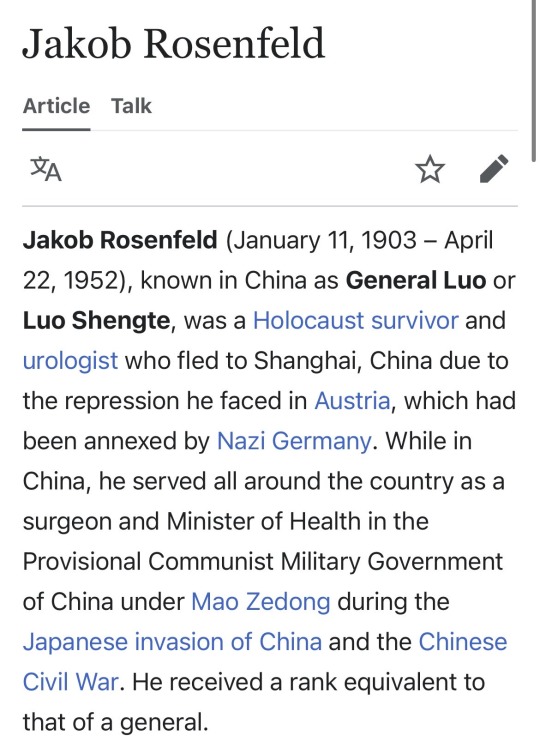
and why are israelis talking about going to china like its a threat
“Rosenfeld arrived in China with one of his brothers, but did not integrate into the Jewish community in the city. His political leanings led him to seek out the local Communists, as did a small group of other Jews. The latter included the reporter, Hans Shippe, who greatly influenced Rosenfeld’s views, and the Jewish-Austrian physician, Richard Frey, who had experiences similar to those of Rosenfeld. The Chinese Foreign Ministry website, which provides added proof of the country’s great respect for Rosenfeld, posted an article that quotes him as saying that he did not come to China to lead a comfortable life, but that he came to join the revolution. And he did in fact do that.
[…] The Chinese Communists considered Rosenfeld one of their own. He was close to the highest-ranking officials in the party, including Liu Shaoqi, who would later become the President of the People’s Republic of China after Mao Zedong’s death, and to Mao himself. He also forged a deep friendship with the Communist commander, Chen Yi, who would later go on to become the Mayor of Shanghai and Foreign Minister of China. The two shared a love of literature and poetry, took hikes together, and had long conversations in French. Chen Yi also wrote poetry, and an anthology of his writings includes a “Letter to Comrade Rosenfeld,” in which Chen Yi supports the decision made by his friend, the European doctor, to join the struggle of the People’s Army of China.
Rosenfeld believed that the Communist Party would free the Chinese people from both the Japanese invaders and the Kuomintang. In 1942, he became a member of the Chinese Communist Party, and he is still considered a national hero in China.
At the end of 1949, after the People’s Republic of China was founded, Rosenfeld decided to return to Vienna. His Chinese friends advised him to remain in China, claiming that Europe no longer had a place for him. But Rosenfeld wanted look for relatives who had survived the Holocaust. At a farewell dinner held for him before going back to Austria, Chen Yi spoke about his friend’s huge contribution to the revolution and awarded him a badge of merit.
After a short time in Austria, Rosenfeld tried unsuccessfully to return to China. He also tried to emigrate to the United States, but was denied a visa due to his ties with Communist China. In 1951, he moved to Israel, settled in Tel Aviv, and worked at Assuta Hospital. It appears that he was actually waiting for a visa to return to China, but within less than a year he died of a heart attack at the age of only 49.”
and he didnt even want to move to israel. zionism and its alliance with antisemitic movements (like american anticommunism) is the negation of the diaspora. slightly tangential to this post but the red scare disproportionately targeted jewish americans. post war us jewish institutional leaders choose to move to the right in their dedication to israel and support for the us government, betraying socialist and anti zionist american jews
150 notes
·
View notes
Text
And I am once again reminding you that for centuries, Ukraine wasn't given its own voice in the world discourse. Our history, politics, culture were written by the people who colonised us and benefited from convincing the world (and us!) of a distorted picture. A good majority of information in English language that exists about Ukraine, that you believe to be the default knowledge of the world, is such distorted information. Because that is how russian propaganda work. They take a snippet of truth and blow it out of proportion and add a bouquet of lies to it and repeat it many-many times until you think that it is just basic information about the world that everyone knows.
No, Ukraine is not run by nazi. Ukraine has a non-zero percent of nazi population that is marginalized out of politics because their rhetoric is not relatable to the majority of the electorate, which leans towards socialistic populism and anarchism.
No, ukraine is not "brotherly nation" with russia. Antropoligically we belong to the same slavic family of nations that includes many other eastern europeans like czechs, polish, moldovan etc. There is no reason to select russians, belorussians and ukrainians into a distinct category that isn't political. The idea of "three brotherly nations" was literally created by a theologist Theofan Prokopovych as a part of philosophical justification to russian imperialism in the 19th century meaning of the word.
No, DNR and LNR are not "people's republics". They were created by russian army, run by the russian army and following the orders from the kremlin. Russis spent decades trying to create a dissident movement in the eastern Ukraine but failed and stepped down to brute force. Everything you see in the southern Ukraine now has happened in the east in 2014. The only difference is that y'all swallowed russian lies back then.
No, Crimea didn't have a "referendum to join russia". Russian soldiers occupied the peninsula, forced the politicians under the gunpoint to announce the referendum, and made sure that the results would be the ones they like. The native population of the peninsula, crimean tatars, that had been twice genocided by the russians in the past, boycotted the referendum. Despite making up only ~12% of the population, crimean tatar rallies were much more numerous than those of the russians in Crimea. The people who "supported" the "return of Crimea" were russian nationals, who moved to the peninsula after the ethnic cleansing of the native population and proclaimed that "it has always been theirs".
No, Ukraine doesn't have a "government-run kill list". Myrotvorets is (1) run by the volunteers, not the government, (2) is a database of pro-russian propagandists, and (3) hardly anyone on that database has been killed so far. FFS, our current first lady used to be in this database.
No, Ukraine didn't ban russian language. Ukraine has implemented laws that would help ukrainian book, music, film industry survive the competition with russian industry that has for many years monopolised our market. Ukraine has implemented the law that our politicians need to know ukrainian language if they want to hold office (this will sound surreal, but many didn't. Can you imagine such scenario in any other country? A spanish minister that doesn't speak spanish?). Ukraine has implemented a law that websites, advertisements published in foreign languages need to have the information accessible in ukrainian as well Ukraine has implemented laws that state that ukrainian citizens have a right to governmental service in Ukrainian. And if you bothered to open the law you criticise at least ONCE, you would have seen that every article has a clarification "the communication can happen in any language as long as both parties consent, but if the consumer requests to be served in ukrainian, the provider is obligated to respond to them in ukrainian".
No, Ukraine doesn't use the war as an excuse to repress the political opposition. The only people that have been "repressed" are the ones who have been colluding with ruZzia and have helped in organising the invasion of Ukraine. FFS one of those "poor oppositioners" is literally putin's godfather, and another visits russian tv channels agitating russians to nuke Kyiv. The proof against them is overwhelming and well-documented, and ukrainian civil society has been pressuring our government to stop them for literal years. Even today, many russian agents remain in governmental structures.
No, Euromaidan was not a "coup". It was a response of civil society to the police brutality and usurpation of power. We do not need white saviours to tell us that being beat up at peaceful protests is bad. We have enough agency to understand this without external help.
It's almost a year of this war. It's high time for people to stop spreading russian propaganda, especially if they claim to support Ukraine. I am yet to see a "both sides are wrong" argument that wasn't based on russian propaganda.
#ukraine#war in ukraine#russia#russian invasion of ukraine#politics#russo ukrainian war#russian propaganda
750 notes
·
View notes
Text
Political offender classification: Class 3
“Class 3 offense is a societally dangerous act which endangers the authority of the East European Socialist Union government and its social and political order, as well as the socialist order as a whole.
Class 3 offenders are dangerous elements with a disdain for the regime, committing crimes with an intention to destroy it.”
In 1955-1960 class 3 was the most common prisoner class as the state needed a lot of camp labor while class 4 had a problem with lack of designation places and class 2 labor communes were still being built.
Notes:
Can be applied to adults only
Used for class 2 offenses during martial law
Used for class 2 repeat offenders
May be used for class 2 and 4 offenses when the state/region is in a great need of hard manual labor
Milder penalties/restrictions for important fields skilled workers (ex. SSR)
Offenses:
Illegal country border crossing to an enemy state
Written anti-government propaganda
Anti-socialist propaganda material possession, private supply or production with an intent of such
Wrecking*
Organized acts of economical sabotage
Personal acts of political sabotage
Contact with foreigners in political purposes
Contribution to class 4 crimes
Deliberate use of media broadcasting devices for anti-socialist agitation or propaganda purposes
Leaking or disclosure of secret information
Acts of material support/contribution for the enemy states or regimes
Penalties:
Termination from the Party
Labor camp imprisonment for up to 10 years
Deportation to labor communes for life**
Protection status:
All remaining constitutional rights protected legally (but often ignored actually)
Further restrictions:
Not allowed to live outside the commune (same for class 2 communes)
Not allowed to vote
Not allowed to return to the Party
Political literacy courses after release from the labor camp
Life prospects:
Located in a labor commune after release from the labor camp
Cannot be released back into society
Life never returns to normal
Rehabilitation possibility:
Partially rehabilitated after labor camp sentence
Class promotion/demotion possibility:
Promotion to class 2 for labor achievements and political loyalty
Promotion to class 2 for good behavior
Demotion to class 4 if attempted escape
Demotion to class 4 if further political offenses committed
Prisoner use methods:
Hard manual labor for the state’s needs
Cheap unskilled labor within their commune
Cheap labor in the offender’s skill field within their commune
May be used in SSR for secret projects
May be used for other types of work in labor camp facilities
Legal documentation:
ID card replaced with rehabilitation certificate; other documentation replaced with class-appropriate ones
Names used alongside camp identification numbers
*Wrecking - acts of vandalism for political purposes.
**Usually it’s not the case. Class 3 offenders often get eventually promoted to class 2 and return back to society in boring remote towns. This process is faster for those employed in SSR.
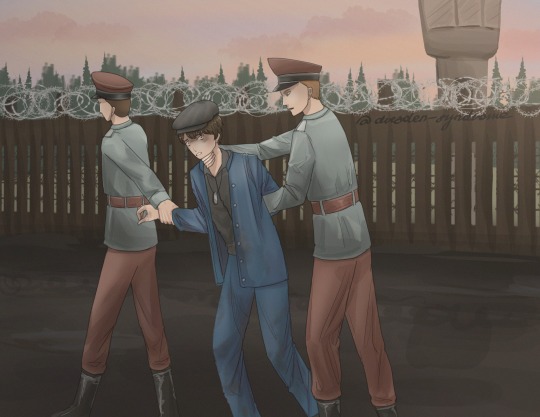
Picture: Labor camp prisoner Tibor Juhász being dragged by guards for a punishment for being caught slacking off work. PUR Hungary, 1961.
Art tag: @painful-pooch @prismpanic @generic-whumperz @suspicious-whumping-egg @onlywhump @whumpedydump @whumpthefifth @monarchthefirst @sunshiline-writes @project-xiii
Lore dump tag: @sweet-lost-husbands @whumpingandsmilinglikeanidiot
@randowhump does it count as factory whump?
#whump#whump community#whumpblr#historical whump#military whump#totalitarian whump#prison whump#factory whump#whump art#whumpee#whump oc#whump ideas#captive whumpee#whump stuff
27 notes
·
View notes
Note
Is most country like Britain or former parts of the British Empire (which I sometimes forget includes the United States), blue represents the more ring-wing/conservative leaning party and red is for the more left-wing/liberal leaning part, but an exception being America and wondering how come?
Great question!

This is actually a recent phenomenon in American politics.
The U.S didn't traditionally have a stable color-coding system for much of its history, in part because American party systems had a very different history that was ideologically distinct from the socialist vs. liberal vs. conservative European model. However, to the extent that there was a color-coding tendency, it was that Republicans were often blue (because of the Union Army's uniforms) and Democrats were often red (because of red-baiting).
However for the 2000 Presidential Election, for some reason all of the networks adopted Democratic = Blue, Republican = Red for their election night coverage and it stuck and now we have this whole concept of "red states" and "blue states" that the rest of the world finds very confusing.
31 notes
·
View notes
Text
Every time I read about European politics I keep coming across political parties like “People’s Liberal Democratic Party for Socialist Humanism (political position: fascism, absolute monarchism, neo-semi-hexist currency reform, theocracy)”
311 notes
·
View notes
Text
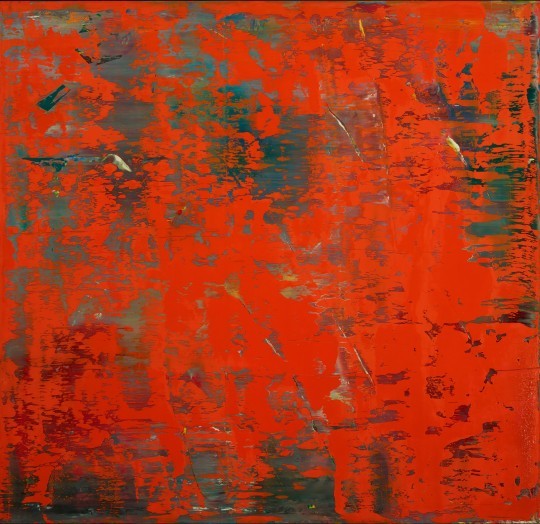
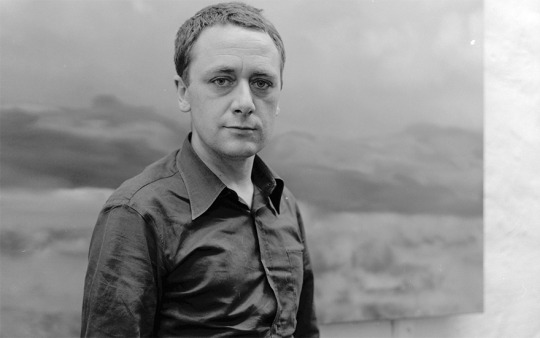
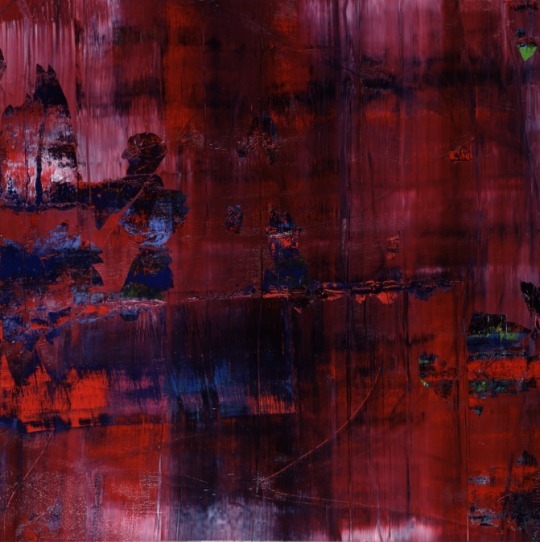
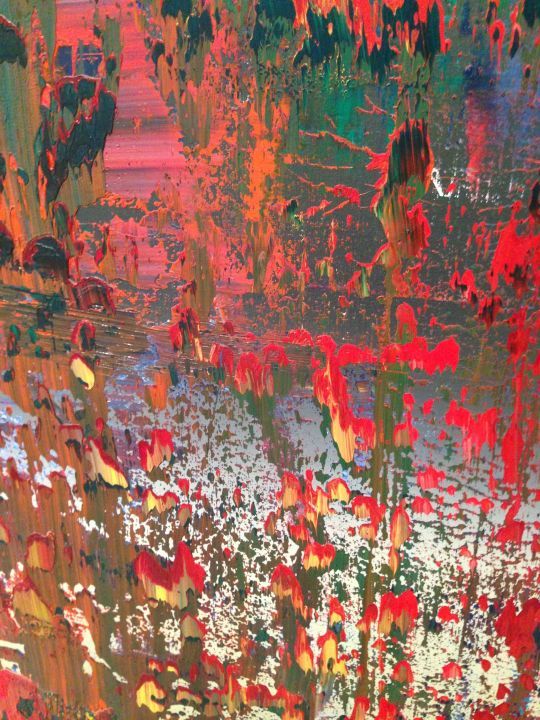
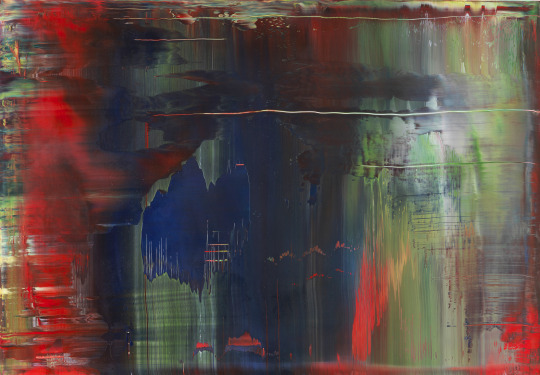
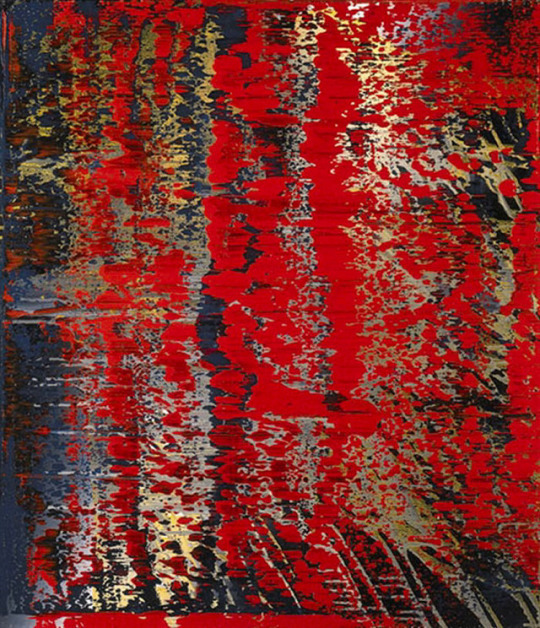
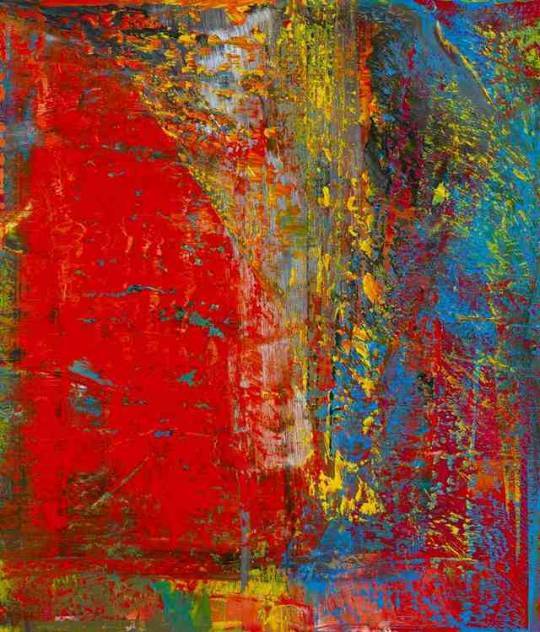

Gerhard Richter was born in 1932 in Dresden, Germany, during the rise of the National Socialist German Workers' Party, or the Nazi Third Reich. Notably, some of Richter's relatives were directly involved in the Nazi movement, namely his father, a schoolteacher, and an uncle. Richter's mother, the daughter of a concert pianist, encouraged her son's early talent for draftsmanship. In 1948, at the age of 16, Richter quit his formal education and took up an apprenticeship as a set painter for the theater. The wake of war proved traumatic for Richter: two of his uncles had been killed in action, and his father had lost his employment. This family turmoil, coupled with the artist's early artistic training under postwar communist-driven ideology, eventually led Richter to seek his creative inspiration in nature over any political or religious affairs or philosophies.
Beginning in 1951, Richter studied at the Kunstakademie, Dresden, where he painted murals and political banners commissioned by state-owned businesses. During this time, the East German communist regime imposed a Social Realist style on all practicing artists; this policy effectively turned art to the service of political propaganda. In keeping with this development, the government banned exhibitions of American Pop art and Fluxus. These circumstances severely limited Richter's fledgling artistic style, as he was instructed to paint only landscapes in a manner heavily informed by pastoral romanticism.
Richter married Marianne Eufinger in 1957, and the couple celebrated the birth of a daughter, Betty, in 1966. Two years later, during a visit to West Germany in 1959, Richter discovered the work of contemporary artists Jackson Pollock and Lucio Fontana. Pollock's uninhibited splashes of color across canvas had a profound impact on Richter, provoking him to reflect on his own artistic ideology. Indeed, Richter began to question how a realist style did not seem to capture the energy, sense of truth, and spirit of artistic liberation that he observed in the abstract work of his American and European contemporaries. Supposedly "realistic", his work seemed to fail to reflect the underlying, tumultuous nature of reality itself.
In 1961, just prior to the government's official completion of the Berlin Wall, Richter moved to Düsseldorf. Once again enrolling at the local Kunstakademie, Richter intended to work in a more uninhibited, avant-garde manner; in the process of rethinking his approach to art making, he purposely destroyed many of his early paintings from the 1950s and the 1960s.
Continue reading https://www.theartstory.org/artist/richter-gerhard/
60 notes
·
View notes